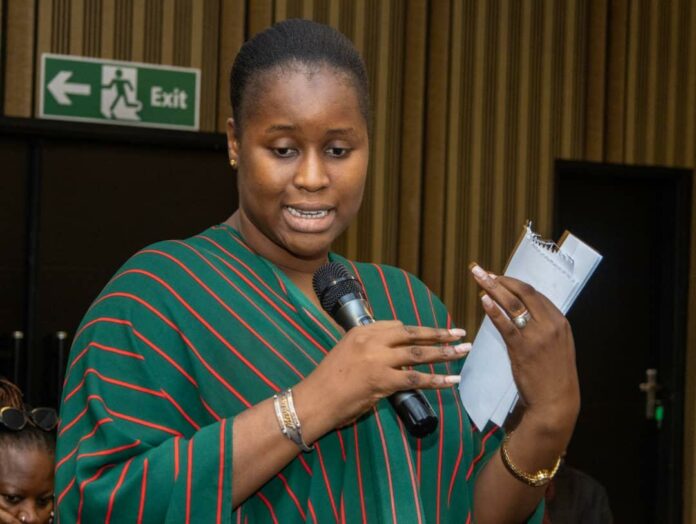By Michaella Faith Wright
Mariama Danso, Executive Director of Fact Check Center – The Gambia, emphasized the communication gaps between politicians and the public, as well as the challenges hindering women’s participation in Gambian politics.
Her remarks followed the release of the Afrobarometer Round 10 data, which provided insight into the state of democracy in the country.
During an event discussing the Afrobarometer Round 10 data, Mariama Danso of Fact Check Center – The Gambia expressed concern about the significant communication gap between political parties and the public. “There is a big gap in communication between the ruling government, opposition, and political parties, which is causing a lack of trust,” she said.
Danso noted that many Gambians are unaware of important developments, such as the draft constitution, and that political leaders are failing to adequately engage with the people. “Most of the conversations we’ve had around the constitutional report show that people are not informed about what is happening,” she explained.
The data also reflected Gambians’ growing mistrust of both local and national leaders. “Trust is an ongoing issue, not just with the central government but also with local government and assembly members,” Danso added.
She also highlighted the challenges women face in participating in politics, citing cultural and societal barriers. “For many women, the primary concern is how to provide for their families, leaving little time or energy for political engagement,” Danso said. She explained that societal pressures often discourage women from entering politics, with many women expressing concerns about how they would be perceived by their families and communities.
“Some women have told us that while they are interested in participating in politics, their husbands won’t allow it, or they fear the societal stigma attached to women in politics,” Danso said. She stressed the need for public awareness campaigns to encourage greater involvement of women in political processes.
Despite these challenges, Danso acknowledged some progress, noting a slight improvement in women’s political participation. “As long as we agree that there’s room for improvement, we can focus on empowering women to actively participate in politics,” she said. She called for initiatives to provide women with the resources and support they need to engage in the political sphere.
Danso also pointed out the lack of communication and trust between the government and the public. She observed that both the ruling National People’s Party (NPP) and the opposition are struggling to provide clear, beneficial information to the public. “There is a gap in communication, and sometimes the government fails to provide information that benefits the public,” she said.
Reflecting on the Afrobarometer data, Danso concluded that Gambians remain committed to democracy and elections, but dissatisfaction with leadership performance is widespread. “Gambians want elections, they believe in democracy, but there is a gap between what people expect and how their leaders are performing,” she said.
Security concerns were another major issue raised during the discussions. “People are directly affected by security issues, and when they raise concerns, they feel nothing is done in response,” Dandso explained. She urged political leaders to address the communication gaps and restore trust between the government and the citizens.
Danso stressed the importance of ensuring that people understand the democratic processes and decisions that affect their lives. “It’s not just about communicating with the public—it’s about making sure they understand the issues and the decisions we make as a democratic country,” she concluded.




